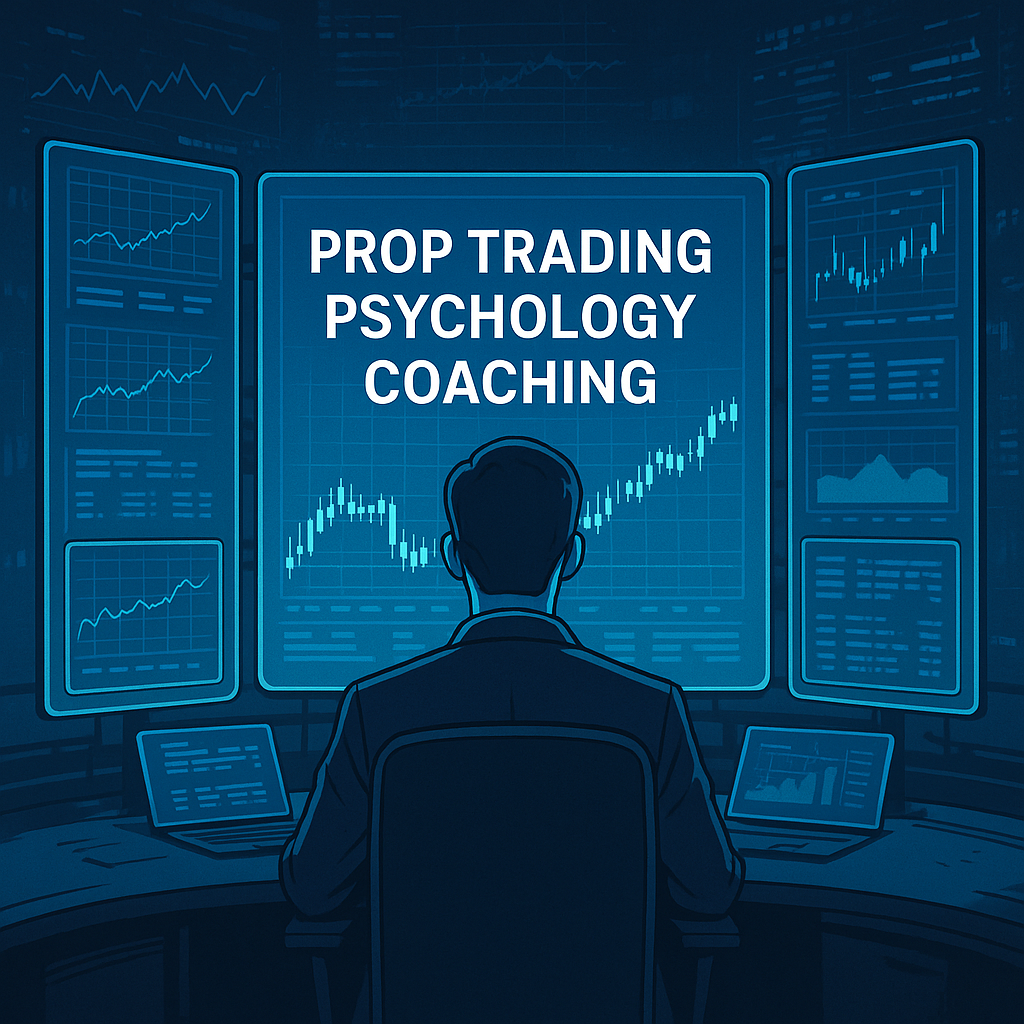Should You Get a Trading Psychologist or Coach?
In the world of proprietary trading, skill and strategy are essential—but they’re not enough. Emotional discipline and mental clarity often separate consistent winners from those who fail. That’s where prop trading psychology coaching enters the conversation. As traders face real capital, pressure, and accountability, psychological resilience becomes a game-changer.
So, should you hire a trading psychologist or coach? This article explores the benefits, drawbacks, and ideal scenarios to help you make an informed decision.
Why Mental Performance Matters in Prop Trading
While most traders obsess over technical indicators or perfecting their strategies, the most overlooked edge lies in the mind. Prop trading places traders in high-stakes environments. When you’re funded, every decision carries real financial implications. It’s not just about whether your system works—it’s whether you can execute it consistently under pressure.
Here’s where things can go wrong without psychological guidance:
-
Revenge trading after a loss
-
Overtrading due to FOMO
-
Paralysis after a drawdown
-
Fear of pulling the trigger
-
Inability to follow risk rules
A coach or psychologist can address these mental pitfalls systematically, helping traders develop internal frameworks to manage emotions and maintain peak performance.
What Is Prop Trading Psychology Coaching?
Prop trading psychology coaching refers to specialized guidance focused on improving a trader’s mindset and emotional resilience. Unlike traditional therapy, coaching is action-oriented. It’s tailored to the high-performance demands of trading.
Typical services may include:
-
Identifying emotional triggers in trading
-
Creating pre- and post-trade routines
-
Developing mental models for risk
-
Goal setting and accountability
-
Techniques for handling losses or winning streaks
Some coaches focus on neuro-performance, while others blend cognitive behavioral principles with trading-specific strategies.
Coach or Psychologist: Which One Do You Need?
Although often used interchangeably, there’s a clear distinction between a trading coach and a psychologist.
-
A trading psychologist is a licensed mental health professional who works with traders dealing with anxiety, trauma, or emotional distress that impacts trading.
-
A trading coach, on the other hand, is often a former trader or performance specialist focused on improving discipline, mindset, and execution.
If your struggles stem from deeper psychological issues, a psychologist may be more appropriate. However, if you’re looking to optimize habits, sharpen focus, and boost consistency, a coach can be the better fit.
Signs You Might Need Psychological Support in Trading
Not every trader needs a coach or psychologist. However, certain signs may indicate it’s time to seek support:
-
Emotional volatility: Frequent mood swings after trades
-
Inconsistent execution: Failing to follow a tested plan
-
Mental fatigue: Feeling exhausted before or during sessions
-
Self-sabotage: Cutting trades too early or hesitating to scale
-
Prolonged stagnation: No growth despite education and effort
These issues typically reflect internal conflicts that can’t be resolved through strategy alone.
Do Prop Firms Offer Mental Support?
While firms like Larsa Capital provide structured rules, fair challenges, and clear trading expectations, they typically do not offer mental health or coaching services directly. That’s why many traders turn to external professionals for mindset development.
At Larsa Capital, your role as a trader is to follow defined parameters. But your success also depends on your ability to stay composed, consistent, and mentally resilient under pressure.
How to Choose the Right Trading Coach or Psychologist
If you decide to seek help, consider the following tips:
-
Industry experience: Choose someone familiar with prop trading dynamics.
-
Verified credentials: Psychologists should be licensed; coaches should have real-world results or testimonials.
-
Client feedback: Look for verified reviews or case studies.
-
Free consultations: Use introductory calls to assess communication fit.
-
Realistic expectations: Improvement takes time and consistency—not instant fixes.
How Coaching Works in Practice
Here’s what a coaching or psychological support process might involve:
-
Initial assessment: Uncover emotional patterns holding you back.
-
Routine building: Establish customized pre- and post-trading habits.
-
Journaling guidance: Track and review mindset-based issues.
-
Weekly reviews: Monitor discipline and emotional control—not just PnL.
This structure turns self-awareness into tangible, repeatable actions.
When Is Prop Trading Psychology Coaching Most Useful?
You don’t have to wait until you’re struggling to get help. In fact, prop trading psychology coaching can be useful during multiple stages:
-
During evaluations: To help maintain focus and reduce overtrading
-
After getting funded: To manage expectations and avoid overconfidence
-
During drawdowns: To regain confidence and reset your mindset
If you’re serious about long-term success, investing in your psychology is just as important as refining your strategy.
Final Thoughts: Do You Need a Coach?
Trading is both a technical and psychological discipline. Many traders spend years perfecting indicators and systems, while neglecting the emotional side—only to stumble when real capital is on the line.
If you feel stuck, overwhelmed, or prone to repeated errors, prop trading psychology coaching might be the missing piece.
Even the world’s top athletes work with mental coaches—why should trading be any different?

